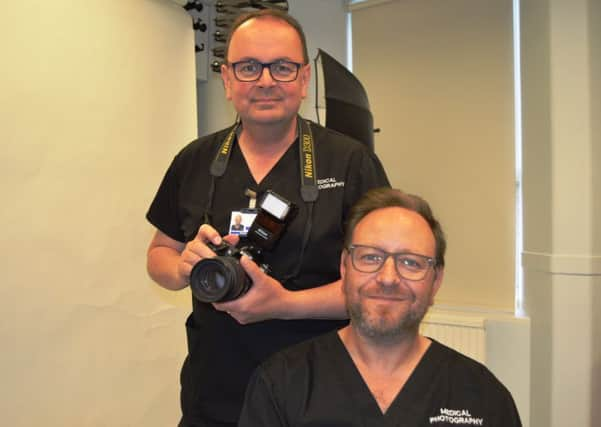'˜Taking pictures of unconscious patients can help them recover afterwards'


The work, on patient diaries, often shows people unconscious and surrounded by high-tech equipment – but showing the images can ‘significantly help’ their emotional recovery.
One of the hospital’s three photographers, Paul Canning (pictured), said: “The job is extremely busy, challenging, and not for the faint hearted as you do need a strong stomach.
Advertisement
Hide AdAdvertisement
Hide Ad“My background working as a forensic photographer and instructor on crime scenes helps!
“After 32 years in this profession, I can honestly say that I still get a buzz every day and the reward is knowing we have helped both medical staff and the patients.”
As well as working on patient diaries, the small team documents and records injuries in various departments.
They also take pictures of injuries that could prove to be vital evidence in court cases.
Advertisement
Hide AdAdvertisement
Hide AdPaul, who spoke as part of the hospital’s campaign to highlight important services, teams, and people, said: “As a teaching hospital, we’re also able to provide photos and videos of wounds and complex surgical procedures for medical staff to incorporate into their teaching and training, sometimes showcasing new equipment or techniques.”
“We have to have a good rapport with everyone we meet. We feel very strongly about making the patient’s experience the best it can possibly be.
“Patients don’t expect to be photographed in hospital so it means a lot to us to get it right. We always take time to explain what we’re doing and why, those few extra moments to build that trust and respect can make all the difference.”
Much of the team’s work ‘concentrates on documentary and evidential photography and video’, with requests coming in from wards, A&E, Intensive Care, and specialist areas such as plastic surgery.
Images taken before, during and after treatment can help improve care.